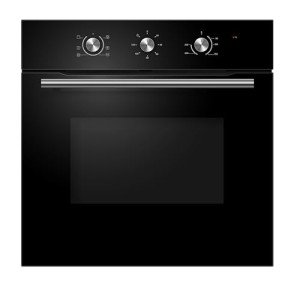The Integrated Kitchen: Redefining Culinary Spaces
The modern kitchen has actually evolved beyond a simple cooking location; it has transformed into a multifunctional area that embodies the contemporary lifestyle. One of the crucial principles that have emerged to support this advancement is the integrated kitchen. visit the up coming site into the idea of integrated kitchens, their advantages, style factors to consider, and frequently asked concerns, supplying a detailed guide for property owners and interior style lovers alike.
What is an Integrated Kitchen?
An integrated kitchen refers to a style method where the kitchen flawlessly mixes with the home of a home. This idea aims to produce a cohesive environment where cooking, dining, and mingling can happen without extreme boundaries. Integrated cooking areas typically include open designs, minimalist kitchen cabinetry, and modern appliances that contribute to a structured aesthetic.
Key Features of Integrated Kitchens
Integrated cooking areas frequently share a number of common qualities that identify them from conventional kitchen layouts:
- Open Layout: Integration of kitchen, dining, and living areas promotes interaction and fluidity.
- Minimalist Design: Emphasis on clean lines and simpleness, frequently with hidden appliances and cabinets.
- High-Quality Materials: Use of durable and visually pleasing products, such as quartz, stainless steel, and natural woods.
- Smart Technology: Incorporation of wise appliances that enhance benefit and performance in cooking and maintenance.
- Multi-functional Elements: Features like kitchen islands that act as cooking areas, dining areas, and social centers.
Benefits of an Integrated Kitchen
The increase in appeal of integrated cooking areas can be attributed to a range of benefits they offer:
| Benefit | Description |
|---|---|
| Boosted Aesthetics | Integrated kitchen areas produce a tidy and consistent look that enhances the overall appeal of living areas. |
| Social Interaction | Open layouts motivate household events and socializing while cooking or dining. |
| Increased Space | Elimination of physical barriers between rooms provides a more roomy feeling, which is especially useful for smaller sized homes. |
| Improved Functionality | A well-planned integrated kitchen enhances the cooking and entertaining process by offering easy access to essentials. |
| Worth Addition | Integrated cooking areas can improve home worth and bring in potential purchasers, thanks to their contemporary design and performance. |
Style Considerations for Integrated Kitchens
Developing an integrated kitchen needs thoughtful preparation and factor to consider of different design elements. Here are some essential elements to keep in mind:
Layout Planning:
- An open layout facilitates a smooth flow between areas.
- Zoning can help define areas for cooking, dining, and relaxation without blocking motion.
Color pattern:
- A cohesive color palette ties together the kitchen with surrounding locations.
- Light colors can make the space appear bigger, while darker tones add warmth and depth.
Storage Solutions:
- Utilize smart storage services like pull-out cabinets and integrated shelving to minimize mess.
- Consider using furniture that supplies additional storage, such as ottomans or coffee tables.
Lighting:
- Adequate and layered lighting is crucial to create an inviting atmosphere.
- Utilize a combination of task, ambient, and accent lighting to enhance functionality and appeal.
Selecting the Right Appliances:
- Select appliances that fit seamlessly into cabinets to keep a clean look.
- Energy-efficient alternatives can save costs and add to a sustainable kitchen.
A Sample Layout for an Integrated Kitchen
| Area | Description |
|---|---|
| Cooking Zone | Central island with a cooktop and counter space for food prep. |
| Eating Area | Nearby dining table that matches the kitchen visual appeals. |
| Relaxation Zone | A little seating area or bar stools at the island for casual events. |
| Storage Solutions | Built-in cabinets and shelves that supply sufficient storage without bulkiness. |
| Transitioning Space | A neutral color palette that perfectly transitions into the living room area. |
Often Asked Questions (FAQs)
1. What are the advantages of an integrated kitchen over a standard kitchen layout?
Integrated kitchens foster a more social and fluid environment, often supplying better area usage and modern visual appeals. They are specifically attractive to families and those who delight in entertaining.
2. How can I achieve a seamless appearance in my integrated kitchen?
To accomplish a smooth appearance, usage consistent colors, materials, and creates throughout the kitchen and adjacent areas. Incorporating cabinetry and appliances with the same finish assists lessen visual mess.
3. Is an integrated kitchen ideal for little homes?
Absolutely! Integrated kitchens can optimize space in smaller homes by getting rid of unnecessary walls and developing a more open feel. Making use of creative storage options and multi-functional furnishings can further enhance performance.
4. What designs work best for an integrated kitchen?
Contemporary, modern-day, and minimalist styles provide themselves well to integrated kitchen areas. However, individual choices can cause unique blends that record specific taste while keeping harmony with the rest of the home.
5. How do I pick the ideal materials for an integrated kitchen?
Select materials that are not just aesthetically pleasing however also durable and simple to preserve. Consider elements like wetness resistance for kitchen counter tops and flooring, as well as the general convenience and appeal of the products used throughout the area.
The integrated kitchen represents a significant shift in how we perceive our cooking spaces. By merging functionality with aesthetic elegance, homeowners can enjoy a space that deals with their cooking needs while inviting household and buddies to collect and socialize. As patterns continue to develop, the integrated kitchen will likely remain at the forefront of home style, making it important for those aiming to develop both a beautiful and practical living environment.

